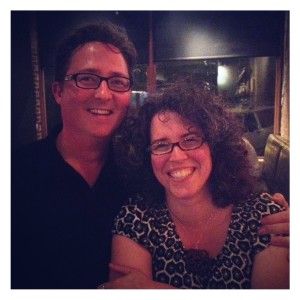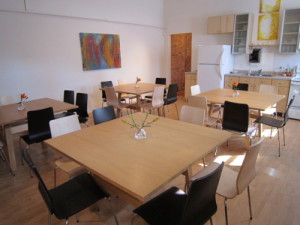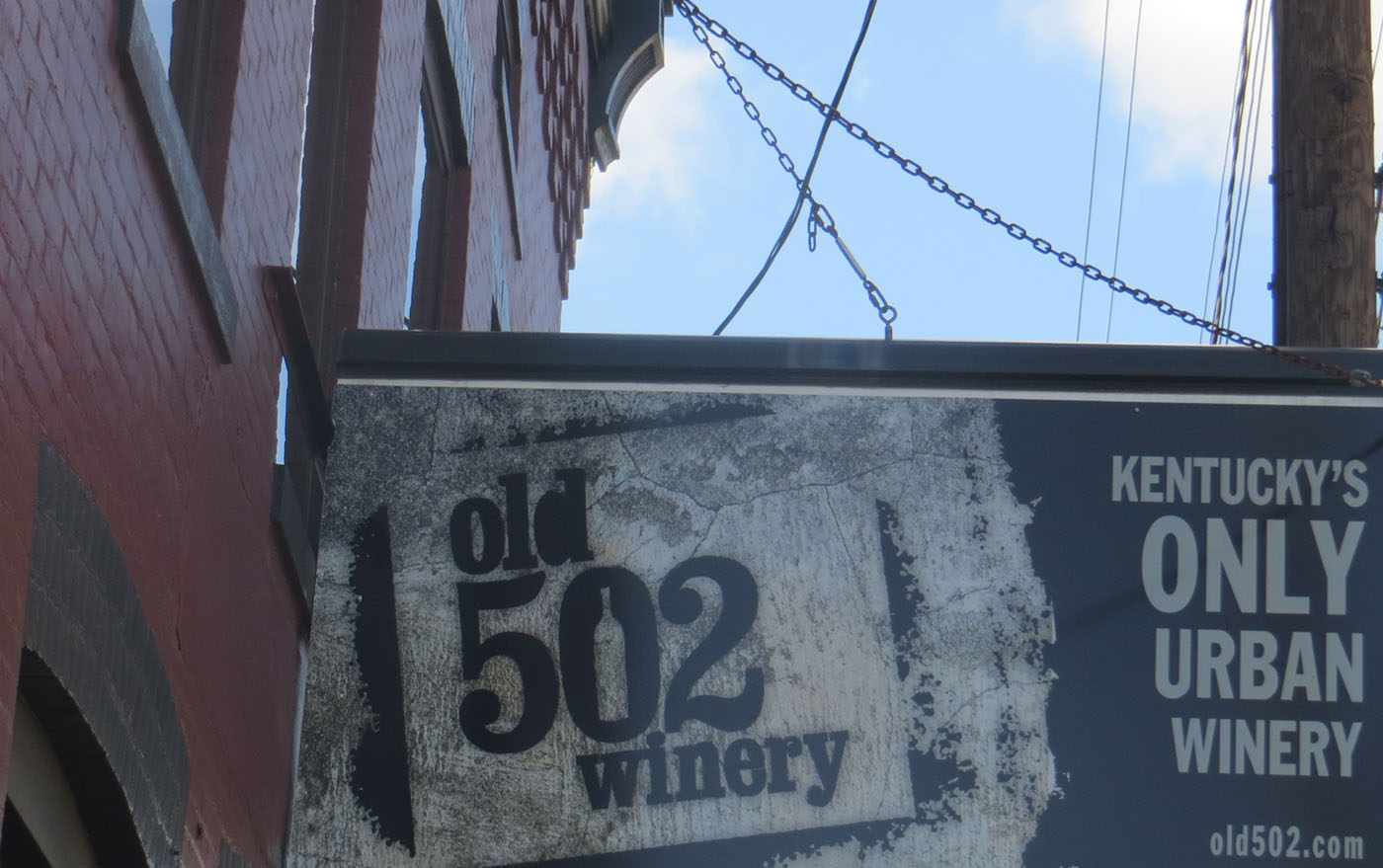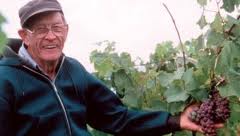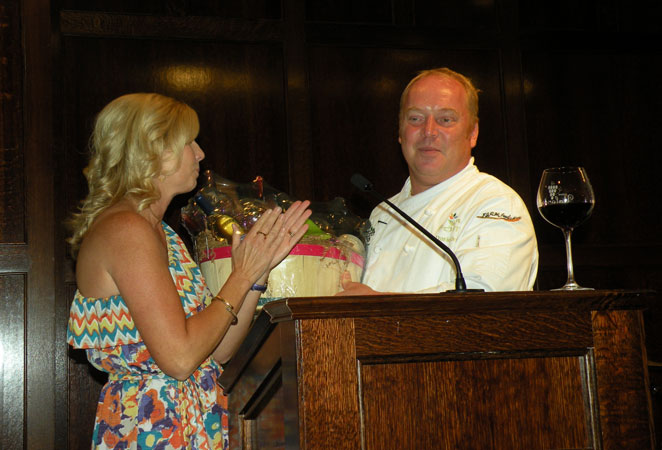New Day Meadery Loves Being Indy’s “Weirdo Winery”
When Tia Agnew and Brett Canaday wanted to take their meadery to the next level, they knew they needed to make a bold move. Now, New Day Meadery sits in the heart of a bustling and rapidly gentrifying urban neighborhood, and the tasting room is full of the mix that Indianapolis’ Fountain Square is known for; from hipsters to retirees to theatre goers.
But blazing a new path is nothing new to Agnew and Canaday. Anyone brave enough to make a go of selling honey-based wines and ciders in Indiana is not afraid to march to their own drummer. New Day is one of the few establishments in the Midwest to have a tasting list comprised exclusively of mead and hard ciders.
Agnew (a wildlife biologist) and Canaday (a food scientist) met while studying at Purdue University. As post graduate careers moved them around the country, they realized that in order to be together long term in Indiana, they had to change direction and start their own food based business.
‘We decided to stay here because we love Indiana, and our family is here. But to do so, we had to be our own answer to the brain drain,” said Agnew, referring to the tendency of young professional Hoosiers to leave for jobs in other states.
Still, opening a meadery was not the natural answer. In fact, it started off, as Agnew puts it, ‘strictly utilitarian.” After they married and began living on Canaday’s sixth generation family farm outside Frankton, an apiary business took shape. Soon, one hive became ten, and a decision was made to combine an abundance of honey with a love of canning to make wine.
‘We didn’t even realize we were making mead at first. All we knew was we were using honey instead of sugar. Only after we did a bit more research did we realize we were making the stuff of Beowulf from sophomore English class,” Agnew laughs.
Having realized their love for mead making could become the business they desired, the couple began to study the Indiana wine industry. Finally taking the plunge, they incorporated in 2004 and released their first bottles in 2006.
New Day obtains nearly all of its honey from Wildflower Ridge in Anderson, Indiana. A blend of mostly clover, wildflower, and black locust, it gives their meads and ciders excellent mid-bodied balance without overwhelming the palate.
The cider apples come from near Wabash, Indiana. Depending on the season and availability, their cider base is made up of ten to fifteen different varieties.
Originally, New Day’s business model was an appointment only boutique winery. According to Agnew, ‘this was our silliest starry-eyedmistake…this is Indiana, not Napa.”
So the couple set down roots in tiny Elwood selling eight different still meads. However, they realized that the remote location of the meadery and their unique product meant they had to go to customers.
In Indiana, that means going to farmer’s markets, and Angew and Canaday would often attend as many as six markets in one weekend. Here, the couple learned how to talk to a skeptical public.
‘In Indiana, you can’t sample alcohol at farmer’s markets. So imagine selling a $20 average price point bottle of wine, made with no grapes, that you can’t sample. We got really good at marketing and communicating. But we also realized that even though customers loved us, due to our remote location, they could only visit twice a year.”
The couple also realized that the traditional Indiana winery model of a large winery combined with a steady weekend calendar of special events was neither practical nor what they wanted. That began the shift to Fountain Square neighborhood, just southeast of Downtown Indianapolis.
‘We looked everywhere, from Lafayette to Westfield to Bloomington, and nearly every neighborhood in Indianapolis. We were free to move anywhere, so we decided to pick a neighborhood that gave us what we wanted for our life. We wanted to be more than a business in a strip mall. We wanted a place with a communal feel. Fountain Square fit us perfectly,” Agnew said.
New Days’s progress was originally delayed by a lack of industrial space for a production facility in Fountain Square. So, the mead making facility remained in Elwood until late 2012, when it finally moved to the nearby Windsor Park neighborhood. Agnew manages the tasting room and marketing, while Canaday manages production, research, and development.
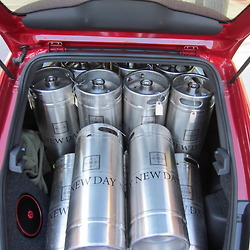 As the meadery moved to Fountain Square, Agnew and Canaday decided to switch the emphasis from bottled meads and ciders into taps and kegs. That move seems to have paid off.
As the meadery moved to Fountain Square, Agnew and Canaday decided to switch the emphasis from bottled meads and ciders into taps and kegs. That move seems to have paid off.
On an average night, ten to thirty people are inside the meadery, either saddled up to the tasting bar or sitting at chairs and tables. Sales by the glass are brisk, and the meadery is one of those places that regulars delight in introducing first-timers to.
Most end up leaving with a full growler. Sales by the glass and growler make up eighty percent of New Day’s business.
Another growth segment is the burgeoning business of selling kegs to restaurants. Keg sales have doubled in the last year, and are expected to double again in the next year. Most of the kegs are fifteen gallon metal kegs hooked up to a restaurant’s beer system.
Generally, the ciders are available at about forty locations across Indiana area such as Indianapolis’ Black Market, Fort Wayne’s Baker Street, and Lafayette’s Black Sparrow.
‘Competition is intense to get on tap at local restaurants, but managers love our product, and it fits that cider niche for those who don’t like beer, as well as those looking for a gluten-free alternative. We’ve the added benefit of a lot of people coming into our tasting room who’ve only heard about us because they tried us on tap at a local restaurant or brew pub,” said Agnew.
To sustain organizational growth, the couple’s plan is to initiate a bottling line to bottle twelve ounce portions of their ciders and meads for sale along craft beers. As they have discovered, there are only so many taps in Indianapolis, and producing mead and cider by the bottle will allow New Day to enter more locations on a smaller scale. Whether they will ever sell nationally remains to be seen, but New Day certainly plans on being a regional player once the bottling line is operational.
Sugar remains taboo – only honey and sorghum are used to ferment or backsweeten. Fruit juice is likewise not used to backsweeten, so Canaday has become well-versed in methods to preserve the phenols and fruit aromas that often blow off in non-grape fruit wine production. Still, most of the meads and ciders remain fairly dry, especially by Midwest winery standards.
Canaday and Agnew say it’s not sugar Midwest palettes desire, but balance. Give them that, and they will drink a quality beverage.
Canaday’s research and development is robust. There are usually ten different small batches fermenting with the hope that they could be the next Breakfast Magpie (Coffee notes with raspberry, chocolate), or sweet yet deliciously balanced Live Currant (Black Currant), or Snapdragon (a Hefeweizen like blend of apricots, coriander, and hops).
There are at least thirty more experimental meads and ciders they plan to try soon. Most won’t ever be released, joining such memorable mead ‘mistakes” as gooseberry, kiwi, and cantaloupe. The latter, once fermented, took on the aroma of cat urine that Agnew still ranks as their top production regret.
The couple notes the collegiality in the Indiana wine industry, and hopes that onerous laws such as shipping restrictions, mandated used of distributors, and production caps are soon eliminated.
The biggest challenge facing the Indiana wine industry in Agnew’s opinion is climate change. ‘Anybody who poo poos climate change better get their head out of their butt, our zones are clearly changing,” she says. ‘The only question is whether we will benefit or not. ‘
‘Indiana experienced a 95% loss in the apple crop last year. We had to source many of our apples from Michigan. We are starting to see these issues more and more. We need to plan for these things if we want to be successful in the wine industry.”
‘We need to pay attention to our supplies, and to be completely business-like about it. The earth is a supplier for me. If there’s damage, we’re all going to suffer”
One has to embrace creativity and daring to do what Angew and Canaday have done. While others might shy away from the risk, for this couple, it’s been liberating.
‘Brett hates it when I call us this, but I love being the weirdo winery,” says Angew. ‘The breadth, creativity, and choices we get to make by being a meadery excites me. We are not bound to varietals. What other winery can say that?”
Charles Miller is the president of the American Wine Society , Indianapolis Chapter.

